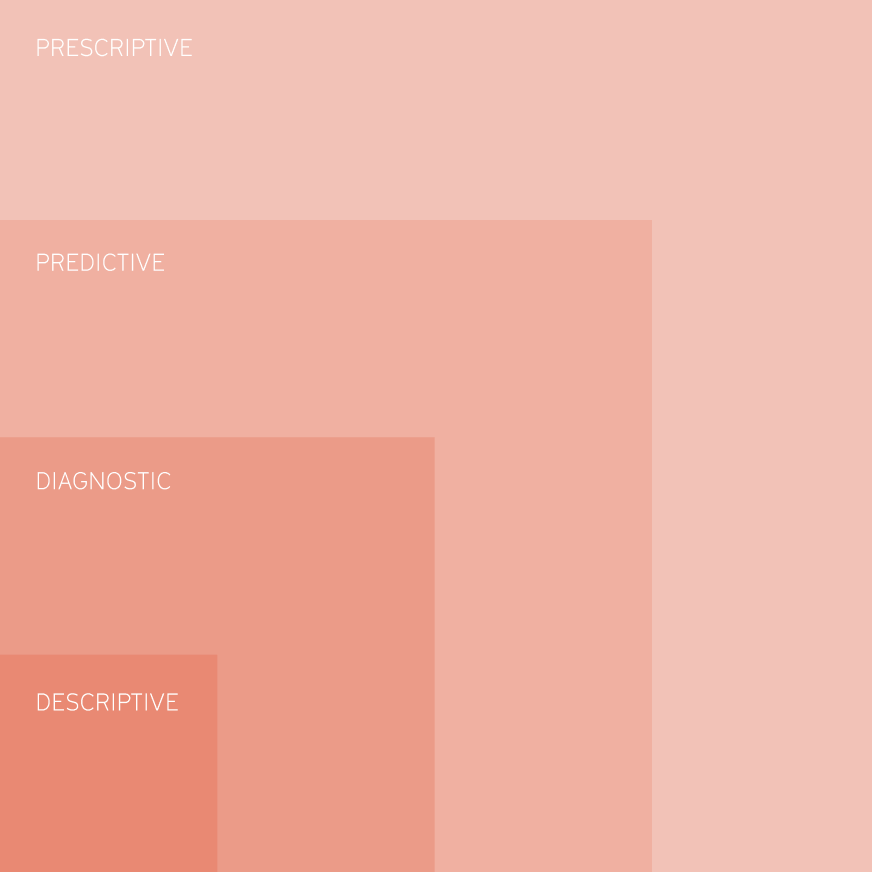Advanced analytics
Reactive into proactive. With Smartbi's advanced analytics, you can leverage your organization’s data beyond traditional BI.
Let's talk
What is advanced analytics?
Advanced analytics is a more sophisticated form of traditional business intelligence. It is used to find data-based insights, make predictions, and create recommendations. The technologies used are, for example, machine learning, AI, neural networks, and other advanced analysis models.
Business Intelligence | Advanced analytics | |
|---|---|---|
Answers the question | Business Intelligence
| Advanced analytics
|
Applications | Business Intelligence
| Advanced analytics
|
Benefits of Advanced Analytics
Take control of the risks and opportunities by using data effectively. By looking to the future and making time-critical decisions, you can avoid potentially costly mistakes for your business. Smartbi's advanced analytics offers many benefits, such as:
→ Accurate predictions
→ Advanced risk management
→ Resource and process optimization
→ Effective decision making
→ Broad, real-time visibility to operations
Contact us

Four levels of advanced analytics
Advanced analytics covers many needs and can be divided into four different levels: descriptive analytics, diagnostic analytics, predictive analytics, and prescriptive analytics. Each level represents an increase in complexity.

Level 1: Descriptive analytics
→ Combines required information to create a descriptive profile about the event
→ Leverages techniques such as data mining, cluster analysis, and summarization statistics
Smartbi case: We automated the analysis of a large and multidimensional data source, which allowed us to discover potential bottlenecks and evaluate the efficiency of the processes. Through the analysis, we created hypotheses and corrective measures that led to better system performance.
Level 2: Diagnostic analytics
→ Answers the question "why something happened" by focusing on past events and creating cause-and-effect relationships
→ Leverages methods such as regression analysis, sensitivity analysis, and principal component analysis
Smartbi case: By combining the previous month's data from production lines and production disruptions, we identified and explained the key factors that influenced the errors. When using the application, we have identified and removed the main weaknesses of the production lines, which has led to more efficient and profitable production.
Level 3: Predictive analytics
→ System based on the future that predicts what is going to happen if certain criteria are fulfilled
→ Is based on probability calculations and uses quantitative analysis, predictive modeling, and deep learning techniques
Smartbi case: By analyzing data points on the status of stored raw materials, we created a system that predicts the quality of the final product and suggests preventive measures to maximize the quality of the final product. After the implementation, the scrap percentage of products decreased significantly.
Level 4: Prescriptive analytics
→ Commonly produces the most value for a business
→ Seeks to answer the question of how each chosen end result would be met
→ Is based on complex analysis methods such as simulation analysis, AI, machine learning, and neural networks.
Smartbi case: We connected the data points from thousands of machines to the user's event reports and created a system that registers deviations in the production line and provides real-time corrective measures to the user. With the help of the application, our customer has succeeded in dramatically reducing machine downtimes and increasing the efficiency of the production facility.
Why Smartbi?

Reliable and experienced
We have extensive experience from working on hundreds of demanding projects and years of applying AI to various business functions.

No vendor lock-in
We always design and implement our services according to your technological requirements - without any technological dependencies.

Pragmatic and effective
We excel at identifying each customer's needs and forming clear and easily understandable solutions. We always keep our promises and pledge to deliver precisely what you need.
Smartbi has the ability to customize their wide service offering – from concept and service design to business development and data modeling – to fit the customer’s needs.